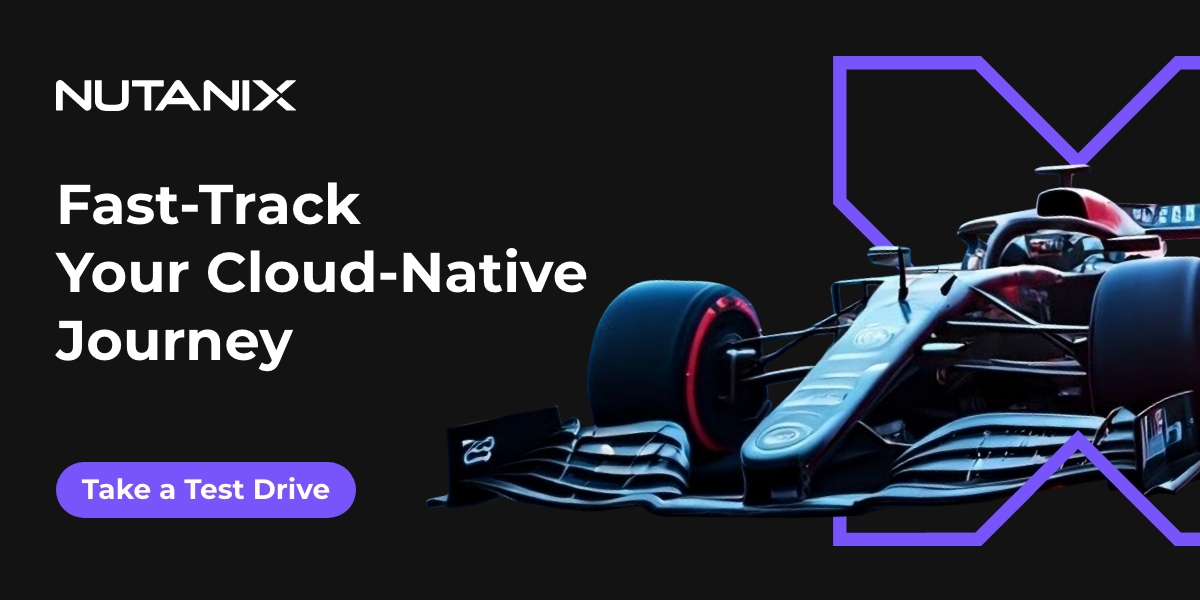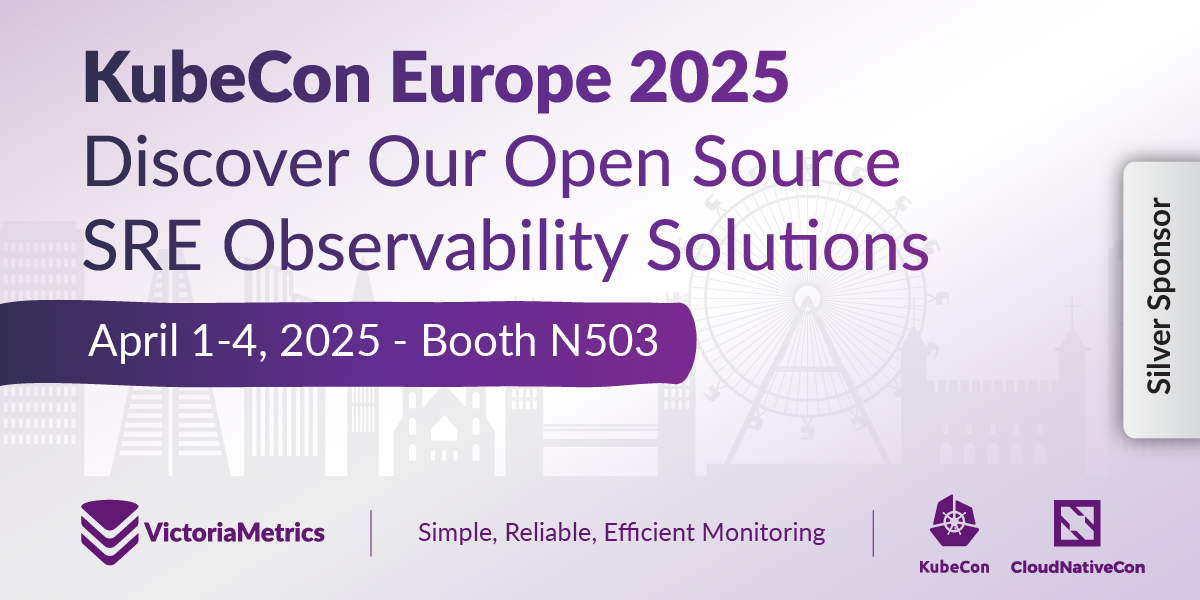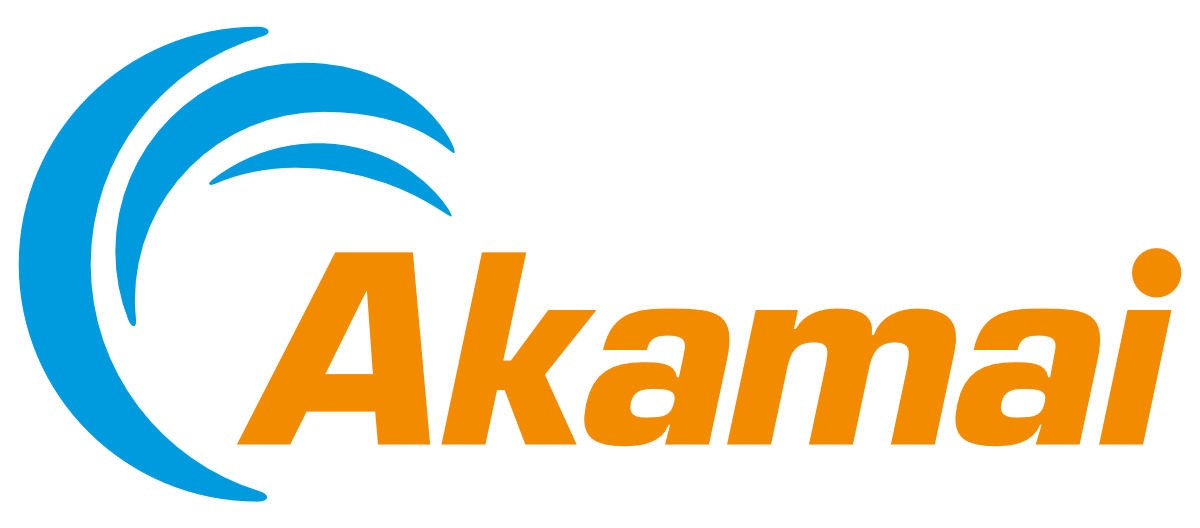VMblog: Can you give us your elevator pitch? What kind of message will an attendee hear from you this year? What will they take back to help sell their management team and decision makers?
Gabriele Bartolini: As enterprises face increasing modernization demands and navigate new AI realities, devops and containerized environments have become essential for developing, deploying and iterating data-driven applications from core to edge. PostgreSQL, the world's most popular database technology, is at the heart of this transformation, and EDB is the leading contributor to PostgreSQL. As the creator of the most popular Kubernetes operator for PostgreSQL, CloudNativePG (CNPG), EDB continues to set the standard for open source and enterprise innovation.
At KubeCon Europe 2025, our message is clear: Kubernetes-powered innovation isn't on the horizon-it's here, and it's already transforming how enterprises manage their most complex, scalable, and sovereign workloads.
CNPG is at the center of this shift. It's the foundation of EDB Postgres AI, the backbone of our hybrid cloud database platform strategy, and the default data layer for some of the most prominent products across our partner ecosystem. The takeaway for attendees? This is the moment to align database strategy with Kubernetes, at enterprise scale.
VMblog: Where can attendees find you at the event? What interactive experiences, demos, or activities have you planned for your booth?
Bartolini: EDB will be at Booth N630, where attendees can see cutting-edge Postgres-Kubernetes integrations in action, including:
- One-line PostgreSQL upgrades - Finally, database upgrades as seamless as Kubernetes itself.
- Kubernetes-native failover & backup - See how Volume Group Snapshots ensure fast, consistent database recovery.
- Migrate PostgreSQL into Kubernetes-without downtime - Learn how enterprises are moving from DBaaS and legacy infra into Kubernetes.
- Postgres + Kubernetes permissions, simplified - Get insights on managing database access across OpenShift and multi-cluster environments.
Beyond the demos, we'll be engaging in deep technical conversations about Postgres, Kubernetes, and AI, answering questions, and sharing best practices for running PostgreSQL in cloud-native environments.
VMblog: How has your company's presence at KubeCon evolved over the years? What keeps bringing you back?
Bartolini: KubeCon is where the cloud-native future is being built, and our presence has grown in step with the adoption of PostgreSQL in Kubernetes.
In 2022, we open-sourced CloudNativePG, contributing it to the community as the first Kubernetes-native PostgreSQL operator. Just two years later, it has become the #1 PostgreSQL operator by GitHub stars and has now been accepted into the CNCF Sandbox-a major milestone for Postgres in the Kubernetes ecosystem.
We're here to engage with the Kubernetes community, share what we're building, and continue breaking barriers between Postgres and cloud-native infrastructure.
VMblog: Can you double click on your company's technologies? And talk about the types of problems you solve for a KubeCon + CloudNativeCon attendee.
Bartolini: The problem is simple: Kubernetes has become the default for cloud-native infrastructure, but databases haven't kept up.
Many database solutions in Kubernetes are just legacy architectures forced into containers, creating complexity, downtime risks, and operational headaches. CloudNativePG is different: it's built from the ground up for Kubernetes, from the leading contributors to PostgreSQL.
It aligns PostgreSQL's storage, failover, backups, and scaling with Kubernetes-native patterns, giving users:
- Fully declarative operations-No manual failover scripts, no mutable database engine images.
- Kubernetes-native HA & disaster recovery-Automatic scaling, failover, and backup orchestration.
- Cloud neutrality-Run PostgreSQL seamlessly across on-prem, hybrid, and multi-cloud environments.
The result: A production-grade PostgreSQL experience that behaves like a cloud service while staying fully open-source and vendor-neutral.
VMblog: In an increasingly crowded cloud-native and Kubernetes market, what makes your solution stand out in 2025? What makes it unique or differentiating?
Bartolini: EDB Postgres CloudNativePG is a portfolio of Operators Maturity Level 5, based on our open source CloudNativePG operator, that facilitates the lifecycle management of highly available Postgres database clusters using native replication, advanced security features, and other enterprise-grade features.
CloudNativePG isn't just mixing "PostgreSQL in a container." It's PostgreSQL re-architected for Kubernetes with a powerful Operator that makes operations repeatable, predictable, and efficient. Here's what sets it apart:
- Kubernetes-native design: No external failover managers, full integration with Kubernetes primitives.
- Immutable & declarative: No mutable database images, no manual patching-fully automated.
- CNCF Sandbox Project: Officially recognized by the Cloud Native Computing Foundation, reinforcing its role in the Kubernetes ecosystem.
- Most widely adopted PostgreSQL operator: Now #1 in GitHub stars, surpassing early leaders in adoption and real-world use.
- Cloud neutrality: Works seamlessly across hybrid, multi-cloud, and on-prem environments.
PostgreSQL is the database of the AI era. CloudNativePG ensures it runs natively in Kubernetes without the usual trade-offs.
VMblog: With AI and machine learning becoming increasingly central to cloud-native applications, how does your solution address these emerging needs?
Bartolini: AI isn't just about analytics. It also thrives on real-time, high-performance transactional databases. PostgreSQL is quickly becoming the database of choice for AI workloads, and EDB Postgres CloudNativePG Cluster, one of our commercial operators, ensures it runs seamlessly in Kubernetes.
The rise of vector search, real-time inference pipelines, and AI-enhanced applications means enterprises need a database that can scale dynamically, integrate into Kubernetes-native AI workflows, and deliver low-latency performance. CloudNativePG enables this by aligning PostgreSQL's flexibility with Kubernetes automation, ensuring AI-driven applications have fast, resilient, and scalable access to structured data.
With native support for pgvector, high-availability clustering, and Kubernetes-driven resource orchestration, CloudNativePG allows enterprises to train models, process data, and deploy AI applications without compromising performance or control-a crucial requirement as AI infrastructure continues to evolve.
VMblog: Is your company involved in or presenting any sessions during the event? Can you give us the details? What key insights will attendees gain?
Bartolini: Yes. EDB experts will be delivering a keynote, a technical deep dive, and panel discussions, providing real-world insights into database operations, AI workloads, and the future of Data on Kubernetes. Here's where to find us:
Keynote: The Next Wave Of Data On Kubernetes-Winning Over The Enterprise
April 1, 10:15 - 10:20 BST | Data on Kubernetes Day
EDB Speaker: Simon Metson, EDB SVP of Engineering
Enterprise adoption of Kubernetes for databases has been accelerating, but decision-makers still see it as complex. Simon will break down what's needed to make Data on Kubernetes the de facto standard for modern applications, and why the Kubernetes community must elevate the conversation beyond technical advocacy to win over the enterprise.
Panel: The Future of Data on Kubernetes-From Database Management to AI Foundation
April 2, 14:30 - 15:00 BST | Hall Entrance S10 | Room D
EDB Speaker: Gabriele Bartolini, EDB VP, Chief Architect, Kubernetes
With databases now the #1 workload in Kubernetes (DoK 2024 Report), this panel explores the evolution of Data on Kubernetes, from traditional database management to AI-driven workloads. Attendees will gain insights into best practices for production database workloads, AI/ML workload orchestration, and optimizing cost and performance in Kubernetes-native environments.
Technical Deep Dive: Consistent Volume Group Snapshots-Unraveling the Magic
April 4, 11:00 - 11:30 BST | Hall Entrance S10 | Room C
EDB Speaker: Leonardo Cecchi, EDB Principal Engineer
Backups in Kubernetes are evolving. This session will take a deep dive into Volume Group Snapshots, a Kubernetes feature first introduced in 1.27 and now moving toward beta. Leonardo will explain how it ensures write-order consistency across multiple volumes, making it a game-changer for database backup and disaster recovery strategies in Kubernetes.
Panel: Compliance at the Speed of Innovation-Leveraging AI-Driven Automation for Real-Time Regulatory Readiness
April 4, 14:30 - 15:00 BST | Hall Entrance N10 | Room G
EDB Speaker: Simon Metson, EDB SVP of Engineering
With evolving global regulations like DORA, security and compliance challenges are slowing enterprise innovation. This panel will explore how AI-driven automation is transforming compliance workflows-reducing manual effort, improving accuracy, and ensuring security teams stay ahead of regulatory demands.
Our sessions will equip attendees with practical, forward-thinking strategies for managing PostgreSQL in Kubernetes, integrating AI workloads, and tackling real-world enterprise challenges.
VMblog: How does your technology integrate with the broader CNCF landscape? What role do you play in the modern cloud-native stack?
Bartolini: At EDB, we developed a Level 5 Operator and saw the value for the overall PostgreSQL community; we decided to contribute it to the Open Source community in the form of CloudNativePG, and fully align with CNCF's vision for cloud-native data management and is officially recognized by the Cloud Native Computing Foundation, reinforcing its role in the Kubernetes ecosystem. It integrates seamlessly with the broader cloud-native stack, including:
- Kubernetes storage (PVCs, snapshots) for persistence.
- Service meshes (Istio, Linkerd) for secure database connectivity.
- Cloud-native monitoring (Prometheus, Grafana) for real-time insights.
- Operators and GitOps workflows for declarative database management.
VMblog: What are the remaining barriers to Kubernetes adoption in 2025? How does your solution help overcome these challenges?
Bartolini: Kubernetes adoption is accelerating, but databases remain one of the final frontiers-not because the technology isn't ready, but because enterprise adoption is still catching up.
For many organizations, complexity is the biggest barrier. Traditional database management is deeply ingrained in enterprise IT, and many teams are still navigating the shift from VM-based or on-prem architectures to cloud-native operations. There's also a lingering perception that Kubernetes isn't built for high-performance transactional workloads, even as more organizations prove otherwise.
EDB's portfolio of Kubernetes operators helps enterprises move past these challenges by providing a PostgreSQL experience that works like Kubernetes itself-fully declarative, automated, and built for high availability, failover, and scaling within Kubernetes-native workflows. By removing the operational burden of managing Postgres clusters, CloudNativePG makes database adoption in Kubernetes as seamless as any other cloud-native service.
With PostgreSQL now the #1 workload in Kubernetes, (DoK 2024 Report), the question isn't whether databases belong in Kubernetes; it's how quickly enterprises can embrace them.
VMblog: With the rise of hybrid operations, how do you help enterprises balance cloud-native and on-premises deployments?
Bartolini: Most enterprises aren't fully on-prem or fully cloud-they need flexibility. EDB Postgres CloudNatviePG is built to deploy and operate PostgreSQL anywhere, meaning it can run seamlessly on-prem, in hybrid environments, and across multiple clouds without architectural changes.
With multi-cluster replication, this ensures PostgreSQL databases can be synchronized across cloud providers or between cloud and on-prem environments, giving organizations full control over where their data lives. It also integrates natively with Kubernetes storage, backup, and failover mechanisms, ensuring a consistent, automated PostgreSQL experience no matter the environment.
For organizations seeking to avoid vendor lock-in, unpredictable cloud costs, or compliance challenges, EDB Postgres CloudNativePG provides an enterprise-ready integration built on open-source foundation-one that aligns with their infrastructure strategy rather than dictating it.
VMblog: What's your perspective on the intersection of DevSecOps and cloud-native in 2025? How do you help customers navigate this?
Bartolini: Cloud-native technologies and initiatives-such as Kubernetes, ArgoCD, Cosign, and OCI-are accelerating the adoption of DevSecOps practices worldwide. By taking a holistic approach that aligns with the 4C security model (Cloud, Cluster, Container, and Code) and embracing a microservice-friendly database architecture, organizations can enhance development velocity while maintaining strong security postures. Integrating PostgreSQL into GitOps pipelines is a key enabler of this shift, allowing teams to achieve continuous delivery with infrastructure and database changes managed as code. CloudNativePG helps customers navigate this transformation by providing a cloud-neutral, secure, and GitOps-friendly PostgreSQL operator designed for Kubernetes-native environments.
VMblog: What big changes or trends does your company see taking shape for 2025?
Bartolini: We're seeing a fundamental shift in how enterprises think about data and infrastructure. Organizations are no longer just exploring hybrid or multi-cloud strategies-they're demanding them. Gartner predicts that 90% of organizations will adopt a hybrid cloud approach through 2027, balancing workloads across private and public infrastructure for security, compliance, and flexibility. But hybrid operations aren't just about infrastructure; they're about data sovereignty, governance, and AI-readiness.
Customers want full control over their data, ensuring it remains accessible, secure, and compliant, regardless of where it resides. This is driving the move away from specialized, siloed databases toward centralized architectures that provide agility without vendor lock-in. PostgreSQL, as the world's most advanced open-source database, and Kubernetes, the foundation of modern cloud-native workloads, are at the heart of this transformation.













